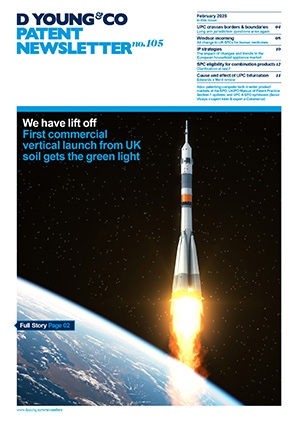CRISPR patents revoked: applicant associated with Nobel Prize winners voluntarily withdraws
The University of California, the University of Vienna, and Emmanuelle Charpentier, applied for European patents relating to the use of CRISPR in eukaryotes. Patents EP2800811 and EP3401400 were initially maintained by the European Patent Office (EPO) at first instance in opposition. Both patents (which include Jennifer Doudna and Emmanuelle Charpentier among the inventors) contained broad claims covering almost any method of modifying a target DNA using a CRISPR-Cas 9 system. These very broad patents originated from a provisional application filed in May 2012 (P1), shortly before the ground-breaking discovery was published in the journal “Science” in June 2012.
However, it was later determined by the EPO that P1 left out an important detail. This detail was added in a second provisional application filed in October 2012 (P2), after the Science publication, as essential for CRISPR-Cas 9 binding and cleavage.
The universities’ initial success in Europe was temporary, as the opposition decisions were, unsurprisingly, appealed. Oral hearings were scheduled for October 2024 and the Board of Appeal released preliminary opinions considering both patents invalid on several grounds.
In particular, the Board of Appeal considered that the claims were not entitled to priority, and the preliminary opinion was therefore that the claims lacked novelty and inventive step in view of the Science publication from June 2012. The Board of Appeal was also of the preliminary opinion that the patents were not sufficiently disclosed because they lacked information on important technical features, meaning that a person skilled in the art could not work the invention.
In October 2024, in response to the preliminary opinions, the representatives acting on behalf of the universities in the appeal proceedings filed lengthy submissions in which they withdrew their approval of the texts of the two patents, thereby revoking two of their own foundational patents and bringing the appeal proceedings to an end.
The universities argued that the revocations were necessitated by “serious procedural concerns” with the Board of Appeal’s approach in recent case law (T2229/19) which, if followed, they believed would violate its right to be heard. In T2229/19 the Board of Appeal held as inadmissible a request to delete two dependent claims solely on the grounds that, although the deletion would have addressed all the objections considered so far, the deletion would not prima facie overcome the Board or Appeal’s preliminary opinion on a different, yet to be discussed issue, namely sufficiency of disclosure. In the universities’ view, issues raised in preliminary opinions should be allowed to be addressed by filing new claim sets that delete the problematic claims from the patent, an approach the universities say was historically routinely allowed by the Board of Appeal. However, according to the universities, in T2229/19 the Board of Appeal deviated from this practice by rejecting a claim set filed in similar circumstances on the basis that it would not prima facie overcome the Board of Appeal’s opinion on a different issue, without allowing the parties to make any arguments on that point. The universities considered that there was a “non-negligible risk” that the Board of Appeal would take this same approach and reject their claim requests without allowing them to properly make their case: “The Patentees cannot be expected to expose the Nobel Prize-winning invention protected by the present patent to the repercussions of a decision handed down under such circumstances, when other members of this family (such as e.g., EP3597749) are still at a stage where the Patentees can procedurally ensure that they will ultimately be fully heard by the Board on all substantive issues.”
The opponents have described the universities’ request for revocation as a strategy to prevent an unfavourable final decision from being issued, and to mitigate effect of such a negative decision for the universities’ other pending patents. The opponents considered the universities’ concerns about T2229/19 as merely an attempt to distract from the deficiencies of the patents identified by the Board of Appeal. They argued there would be nothing improper about the Board of Appeal rejecting the universities’ proposed claim sets, as it was the universities’ choice not to file them sooner (the problematic issues being in play since the outset of proceedings).
This latest update in the CRISPR patent story creates additional uncertainty for those trying to navigate the highly complex CRISPR IP landscape, and for those already paying licensee fees to these dominant patents in order to secure use of this technology. It also prompts patentees to carefully consider their strategy for filing auxiliary claim sets at an early stage of proceedings.
Case details at a glance
Jurisdiction: EPO
Decision level: Boards of Appeal
Parties: Ipsen Bioinnovation Ltd v Allergan Inc
Citation: T2229/19
Date: 06 October 2023
Useful links
- EP2800811 revoked, 27 November 2024: dycip.com/ep2800811
- EP3401400 revoked, 27 November 2024: dycip.com/ep3401400

